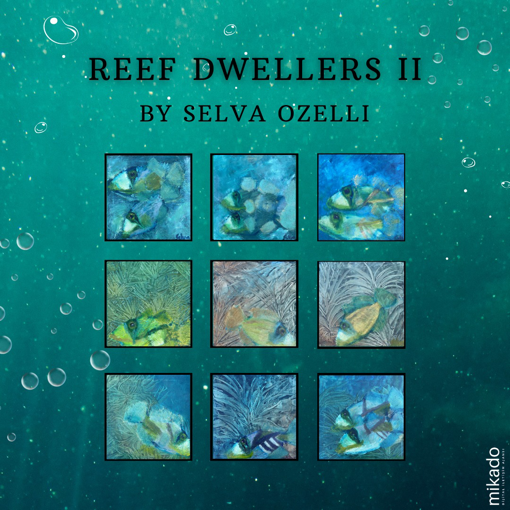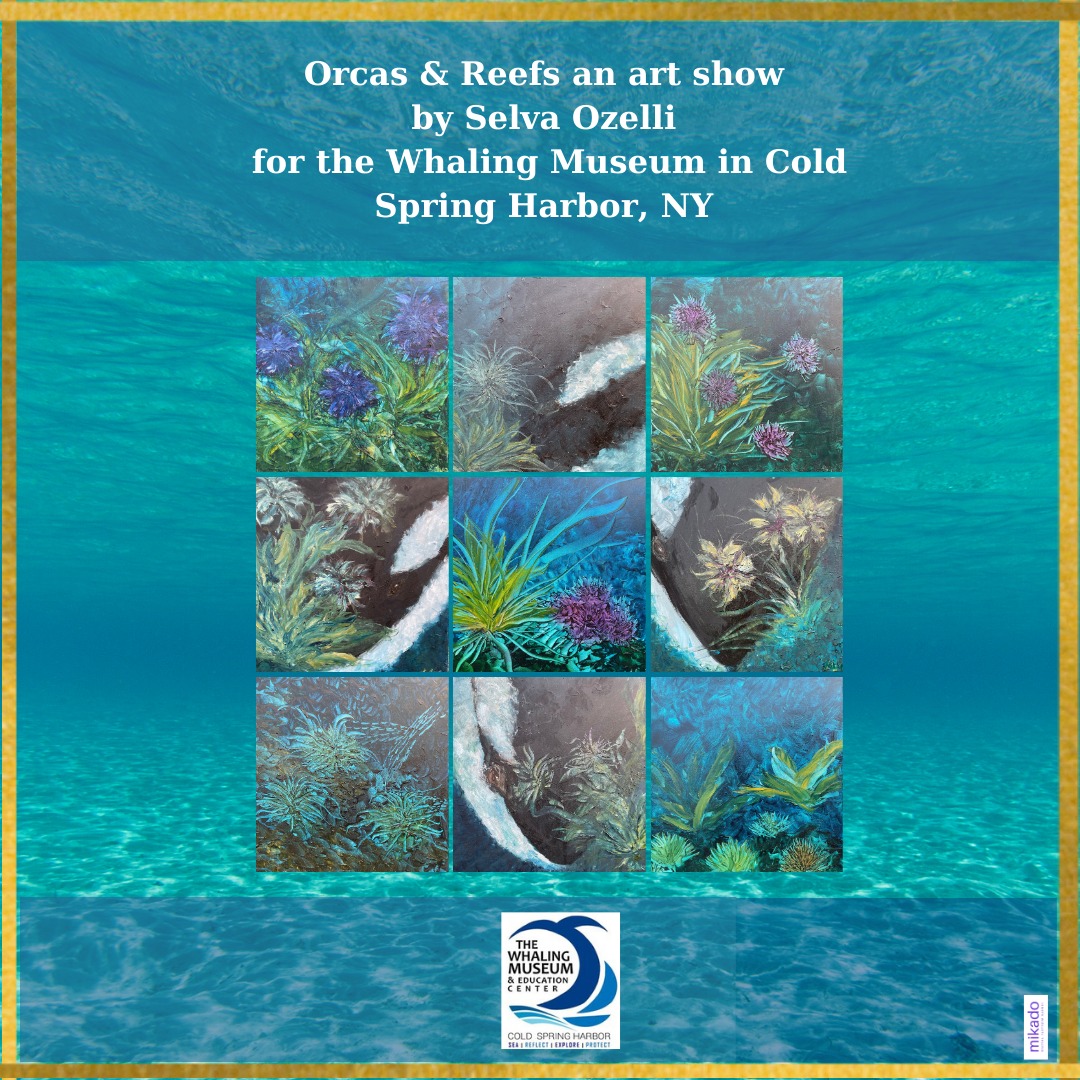2024-11-29 22:11:24
Artist Selva Ozelli launches her burning roses and reef themed art shows at the London Climate Action Week.

London Climate Action Week 2023 is held in London on 24 Jun - 02 Jul, 2023. This year, events is focused on four main themes: (1) Accelerating the global clean economy; (2) Delivering just climate transitions; (3) Growing networks for action; (4) Creating a greener London.
Biodiversity is essential to the existence and proper functioning of all ecosystems and are the pillars upon which we build civilizations. Without nature we have nothing. A major impact of climate change on biodiversity is the increase in the intensity and frequency of fires, storms or periods of drought. As global temperatures rise, the size, frequency and severity of wildfires are expected to increase in the years ahead, wrecking air quality globally. For example, New York City had the worst air quality in the world as smoke from Canadian wildfires rolled in this week according to IQAir, a Swiss air monitoring company.
Dangerously high temperatures are being recorded in various parts of the Asia Pacific region, such as Malaysia, Nepal, Bangladesh, India, Thailand, Viet Nam and more. The intense heat coupled with poor air quality has devastated livelihoods and endangered the health of millions. There has already been a sharp increase in cardiovascular and respiratory infections, and deaths.
Seth Sarmiento, Regional Urban Risk Management Coordinator, IFRC Asia Pacific Regional Office said “Heat is a silent killer, but much can be done to reduce its impact. We need to adapt and anticipate better to protect and warn communities before, during and after heatwaves.”
The loss of nature and biodiversity is the fourth most severe threat we face in the next 10 years. It comes with a steep cost to the oceans since, nearly 10% global marine species were found to be at risk of extinction, according to the latest report from International Union for Conservation of Nature (IUCN).
Reef Dwellers 2
Over the next century, climate change is projected to profoundly impact coastal and marine ecosystems including whales and reefs. Whales are at the top of the food chain and have an important role in the overall health of the marine environment. The orca whale (Orcinus orca) is a toothed whale belonging to the oceanic dolphin family, of which it is the largest member. They are recognizable by their black-and-white patterned body and can be found in all of the world's oceans in a variety of marine environments, from Arctic and Antarctic regions to tropical seas including the waters of the Great Barrier Reef which is one of the richest and most complex natural ecosystems on earth, and one of the most significant for biodiversity conservation.
Whales play a vital role in the marine ecosystem where they help provide at least half of the oxygen we breathe, combat climate change, and sustain fish stocks. Each great whale sequesters an estimated 33 tons of CO2 on average, thus playing their part in the fight against climate change. Increased ocean temperature may cause reef building coral to bleach, become stressed and eventually die. Ocean acidification may slow or halt the calcification of several calciferous species including coral, coralline algae and mollusks and dissolve calcium carbonate structures on the reefs which are essential to approximately 25 percent of all marine life.
Orcas & Reefs
But the good news is that recently nations agreed on the historic High Seas Treaty to place into protected areas 30% of the world's oceans by 2030 per UN biodiversity conference COP15 last year. Nations also agreed to develop a legally binding agreement on reducing plastic pollution by 2024.
Multiple award winning artist Selva Ozelli whose work is cataloged by the United Nations, Tokyo Metropolitan Museum as well as the Berlin University of Art's "Climate Summit Art Project 1972-2022" will launch her burning roses and reef themed art shows at the London Climate Action Week. The Orca’s & Reefs art show will also be exhibited at the Whaling Museum in Cold Spring Harbor, NY during June. Her art shows, draw attention to the fact that healing has begun to build back biodiversity and reduce plastic pollution in our Oceans to accelerate the global clean economy.



Most Viewed

Elephants, Giant Harmless Animals
2024-11-29 22:11:23

Commercial whaling and climate change are inhibiting evolutionary change in Arctic whales
2024-11-29 22:11:24

World Environment Day: 5th June
2024-11-29 22:11:24

Talking About Earth Day at Havre de Grace Maritime Museum
2024-11-29 22:11:24

Lithium: Global Projects and Policies of Economic Powers
2024-11-29 22:11:24
Comment

Why we need a UN Treaty on plastic pollution The Ellen MacArthur Foundation is a UK charity working on business, learning, insights & analysis, and communications to accelerate the transition towards the circular economy.

Air Pollution for Kids Air is all around us and we need it to survive.

Why We Need to Stop Plastic Pollution? Our oceans are being filled and killed by throwaway plastics.

Climate Change, Ecological Crisis and Sustainability We are all agents for change in climate action.

Climate Racism Climate Racism: Social Inequalities in the Age of Climate Change
oiseau
2024-11-30
Cet article m'a donné bcp d'informations que je savais pas. Mercccccccccciiiiiiii
Martin Béchu
2024-11-30
Je vois les oiseaux voler. C'est un article util pour moi.
Anne Hidachi
2024-11-30
Je me demande si les oiseaux migrent lors du changement climatique... Malhereusment les oiseaux sont chassés par les chasseurs durant la migration.